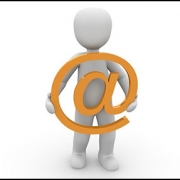How to safeguard your email account
Email has become an integral part of our everyday lives. There are very few of us who are not using it in one way or another each day. Most people have a free email account from Gmail or Hotmail, and they will use this for all aspects of their lives – business use and personal use. It connects them to colleagues and friends, it logs them into websites, banks, and shops, and identifies them for social media.
So you’re using your email for all of these purposes, but are you safeguarding it properly?
- Use strong passwords
You won’t get far on the internet these days without giving out your email address to one website or another. While your email address is not private information, it is only protected by a single password. If your password is weak and easily guessed by a hacker, they will have full control over everything in your email account. Always use strong passwords with a mixed selection of numbers, letters, and symbols. Gmail recommends the following:
- Use a unique password for each account
- Use a long password
- Use phrases that are personal to you
- Change passwords every 6-12 months
- Be careful in public places
Checking your emails with public computers, such as in the library or internet cafe, puts your emails at risk. Never let these computers “remember” or store your details, and always log out of everything as you go.
- Lock away your information
Every time you step away from your desk, even for a short period of time, make sure you close down your emails and lock your desktop. You can do this on Windows systems by holding the Windows key and pressing the L key. Leaving your machine unlocked leaves it open to being hacked, even by fellow colleagues.
- Encrypt those emails
Sending sensitive information by email requires extra safety measures. Save your data as a document as this will add a layer of encryption to it. Then store the file as an encrypted ZIP document. You can then issue the recipient with a separate password that allows them to access the file. If you need to send lots of encrypted emails, it’s worth investing in a special encryption programme, talk to us today and we’ll help you with this.
- Set up account recovery
Most email providers allow you to add an extra layer of security to your email account, which will prevent hackers getting in. This could include adding a two step verification in case you forget your password, such as;
- Mobile phone: Add your phone number so you can get a special code sent to you that helps you, and only you, log into your account.
- Email address: An alternative, recovery email address can be sent a special password reset link.
- Security questions: Special questions which only you know the answer to will help verify that you are the owner of the account.

